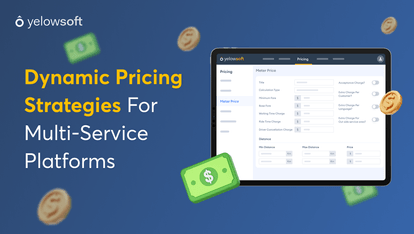Manual invoicing may feel familiar but it is costing taxi and chauffeur operators more than they realize.
Paper receipts get misplaced, admin work keeps piling up, and payments arrive late.
The outcome is slower cash flow, rising compliance risks, and clients who begin to question your professionalism.
The industry is changing quickly. The taxi operators no longer compete only on service quality, they compete on efficiency and trust.
In this blog you will see why sticking with paper is costing you more than you realize, what switching to digital invoicing means, and how to move from paper chaos to digital ease with the right taxi invoice solution.
The Hidden Costs of Manual Invoicing
Paper invoicing looks harmless but the hidden costs tell a different story. Time, money, and accuracy are all lost when operators depend on outdated manual billing practices.
Time lost in paper trails
PHOs and chauffeurs spend weeks processing invoices. Manual work slows dispatch teams and leaves less time to serve clients or win contracts.
Financial drain
Paper invoicing costs up to 16 dollars each. Automating saves over 120,000 dollars yearly for operators handling 1,000 monthly invoices.
Errors and disputes
Nearly 40% of paper invoices contain costly mistakes. For corporate accounts, even small errors damage reputation and risk losing clients.
The clear solution
Operators who automate invoicing for taxi rides move from paper chaos to digital ease. Many already search for digital invoicing taxi dispatch software to stay competitive.
Why Chauffeur and Executive Operators Cannot Afford Paper Invoices?
For chauffeur and executive operators, reputation decides everything.
Clients book premium cars expecting punctual service and professionalism, yet a simple paper invoice can undo that trust.
Prestige at risk
VIP clients expect polished digital billing. Paper invoices weaken your brand and late invoices are linked to 25% of bankruptcies (Upflow).
Scaling without burnout
Most owners spend hours on invoicing instead of growth. Paperwork piles up and stops you from winning new contracts.
The digital fix
A modern platform generates branded invoices, automates repeat billing, and keeps records audit ready. An e-invoice for taxi rides signals professionalism instantly.
Why Taxi and PHO Firms Are Drowning in Manual Billing?
Private hire operators handle high volumes of trips every day.
Bookings come in through phones, websites, affiliates, and apps. With so many moving parts, billing often becomes the weak link that disrupts the entire operation.
Dispatcher overload
Call centres and dispatchers already juggle constant phone bookings.
Adding manual invoices to the workload leads to errors, lost records, and stressed teams.
Studies show that 62% of small UK businesses regularly face overdue invoices (Clockify) and the average payment delay stretches to 6.7 days beyond the due date (PaidNice).
For operators on tight margins, this delay creates serious pressure.
Compliance stress
Many taxi and PHO firms must follow strict regulations from bodies like TfL, NHS, or local councils.
Paper invoices and scattered spreadsheets make compliance reporting time consuming and error prone.
When audits come up, operators risk fines or losing important contracts simply because billing records are incomplete.
Automation advantage
The solution is a taxi invoice solution that integrates directly with booking and dispatch.
By unifying trip data and invoices, operators create audit ready logs that reduce compliance stress and free dispatchers from repetitive work.
This is why more operators search for corporate account invoicing taxi companies — they need systems that handle both regulatory requirements and high booking volumes.
Digital invoicing keeps passengers confident, dispatchers calm, and regulators satisfied. Manual processes cannot promise the same.
The Business Case for Digital Invoicing
Digital invoicing is not just a technical upgrade. It is a direct path to faster payments, stronger compliance, and measurable financial growth.
Faster payments
One of the most immediate gains comes from cash flow. Studies show that e-invoicing speeds payments by up to 2.5 days (Avalara).
Faster billing cycles keep drivers paid on time and give operators predictable revenue.
On top of this, automation cuts invoicing costs by 60 to 80% (Gov.uk).
Operators who choose to automate invoicing for taxi rides can recover both time and money that paper processes drain.
Compliance-ready reputation
Regulators like TfL, NHS, and local councils require accurate, instant reporting. Paper invoices create bottlenecks that risk contract renewal.
A taxi invoice solution connected to the dispatch system ensures every ride and every charge is recorded correctly.
When audits arrive, records are ready without the panic of digging through folders.
ROI and growth
The financial return on automation is striking. Research shows that automation delivers between 150 and 500% ROI in the first year (GoComet).
At a broader level, the global accounts payable automation market is projected to grow from 3.8 billion dollars in 2024 to 6.8 billion dollars in 2030, a compound annual growth rate of 10% (MarketResearch).
Operators already searching for the best taxi invoice solution in 2025 know that this trend is not optional. It is the future of sustainable operations.
Market Validation: Why Everyone Is Going Digital
By now it is clear that digital invoicing solves real problems for operators. But the shift is not only happening inside the taxi industry.
The broader business world is moving rapidly toward automation, which makes adoption even more urgent.
The global wave
Financial automation is experiencing remarkable growth.
Reports show the market is valued at 8.1 billion dollars in 2024 and projected to reach 18.4 billion dollars by 2030, expanding at a 14.6% compound annual growth rate (MarketResearch).
At the same time, accounts receivable automation is forecasted to grow from 3.6 billion dollars in 2024 to 7.1 billion dollars in 2030, a rate of 12% CAGR (MarketResearch).
These numbers confirm that companies in every sector are prioritizing automation to remain competitive.
Taxi industry impact
Ride hailing giants have already embraced digital billing, which sets new expectations for customers everywhere. Smaller operators cannot afford to ignore this reality.
Clients who experience smooth digital receipts from global brands will expect the same from local providers.
Adopting a taxi invoice solution ensures operators do not fall behind as customer expectations rise.
The transition is no longer a matter of choice but a matter of survival.
The data shows where the world is heading, and operators who act early will enjoy the benefits while competitors continue struggling with paper chaos.
How to Transition From Paper to Digital?
The benefits of digital invoicing are clear, but many taxi and minicab private hire operators still hesitate because they believe the change will be complicated.
The truth is that moving from paper to automation can be done in simple steps that reduce stress instead of adding to it.
Step 1 – Audit your current flow
Start by reviewing how invoices are created today. Identify where mistakes happen most often and how much time is lost chasing paperwork. This will give you a baseline for improvement.
Step 2 – Choose the right platform
Select a taxi invoice solution that connects seamlessly with your booking and dispatch system. This integration ensures that trip data flows directly into billing without manual entry.
Step 3 – Migrate data and train your team
Import existing invoices into the system and walk your staff through the new process. Training usually takes little time because most digital systems are designed to be user friendly.
Step 4 – Begin with corporate accounts
Pilot digital invoicing with corporate clients first. These customers expect professionalism and consistency, and delivering a branded e-invoice for taxi rides will strengthen your relationship with them.
Step 5 – Scale across the business
Once the process is stable, roll it out for every ride. Over time, digital invoicing will become second nature for dispatchers, drivers, and passengers alike.
Transitioning is not about disruption, it is about creating a smoother operation. Each small step brings operators closer to the benefits of faster payments, fewer errors, and stronger client trust.
Conclusion
Paper invoicing slows payments, creates errors, and weakens client trust.
Digital systems remove these problems by connecting bookings with billing and delivering accurate records instantly.
Operators who automate invoicing for taxi rides save money, avoid disputes, and build stronger reputations.
Sending a branded e-invoice for taxi rides shows professionalism before the journey even begins.
The future belongs to companies that adopt a reliable taxi invoice solution now.
Every day on paper is a day of lost revenue. Book a demo today and see how simple it is to move from paper chaos to digital ease.
Transform your invoicing from manual mess to digital ease
FAQs
Automation connects your dispatch system with billing so invoices are generated instantly after a trip. This removes manual entry, reduces errors, and speeds up payments.
The best solutions is Yelowsoft. It allows you to integrate booking, dispatch, and invoicing in one platform. It also allows you to issue branded invoices, track corporate accounts, and remain compliance ready.
Yes. Digital invoicing allows you to send branded e-invoices to passengers by email or app notification, giving them a clear breakdown of charges while building trust in your service.
Chauffeur services rely on corporate and VIP clients who expect accuracy and professionalism. Automated billing ensures invoices are consistent, branded, and free of errors, which helps win repeat contracts.
A unified invoicing and dispatch system creates accurate logs of every ride. This makes it easy to meet TfL, NHS, or council reporting requirements and avoid penalties during audits.




